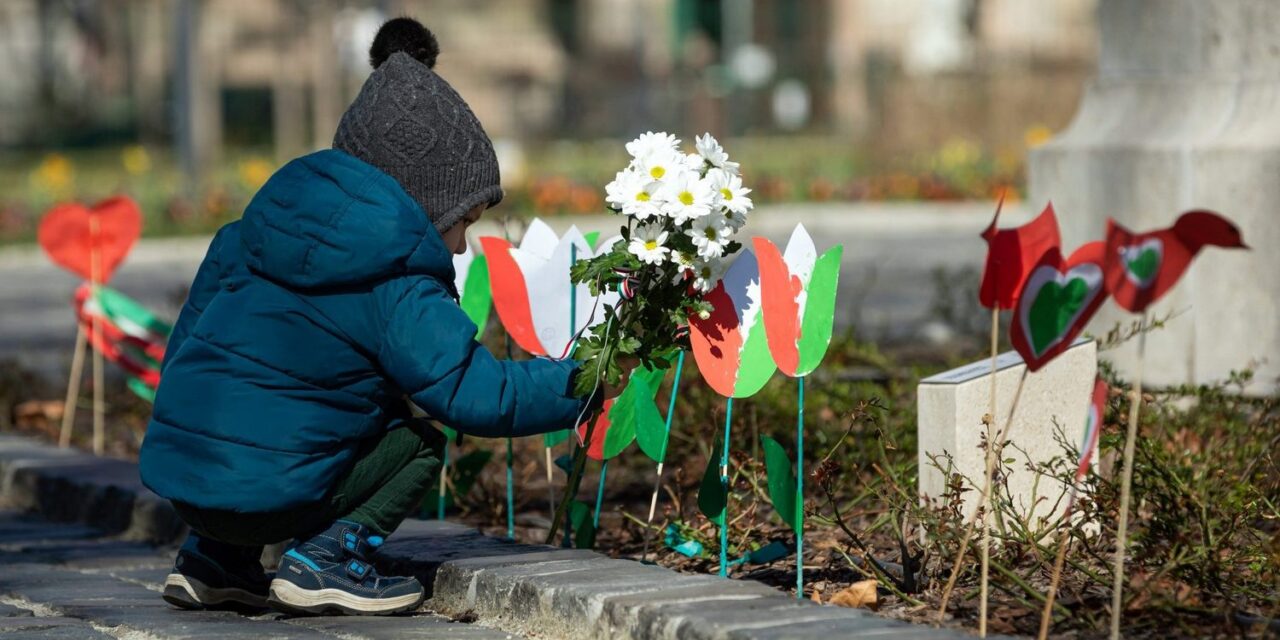Although the national language and traditions are considered a central element of national identity in all countries of the world, according to surveys published in January by the American Pew Research Center, an independent think tank, among European countries, among other things, the national language and traditions are considered the most important in Hungary. The name of our country can be found either at the top or at the strong edge in all categories of the national identity survey.
According to the survey, language and traditions are mostly the central elements of national identity in Europe. Much stronger
opinions are divided as to the extent to which place of birth or religion are among the most important characteristics and conditions of national belonging.
In the 23 countries surveyed by Pew Research around the world, 91 percent of respondents said that knowing their country's most commonly used language is important to truly belonging to the nation, while 81 percent believe that learning the customs and traditions of their country is a condition for someone to belong to that country. belong.
place of birth and religion in terms of national identity already shows a mixed picture.
The Dutch also care about it
The survey did not cover all the countries of the world or Europe; the research institute's study published in January took into account the opinions of respondents from ten states on the European continent, Hungary, Poland, Germany, the Netherlands, France, Italy, Great Britain, Sweden, Spain and Greece.
When asked how important the knowledge of the country's most widespread language is to national identity,
the largest proportion of Hungarians (96 percent) said yes.
We can add: head to head with the Netherlands, which also said yes in 96 percent; Hungary came to the top of the list because 74 percent of the respondents here saw this factor as very important and 22 percent as somewhat important, while in the Netherlands this ratio was 64 and 32 percent, respectively. For both Hungarians and the Dutch, the proportion of those who do not see knowledge of the language as an important factor is 4 percent each.
According to the survey, the Greeks and the British consider knowledge of the language to be the least important (88 and 86 percent).
Of the non-European countries, the most people in Indonesia, almost all respondents (96 percent), consider it important to know the most common language. It is least important in Brazil (67 percent) and Israel (58 percent).
Where tradition is important
Among the surveyed countries, Hungary also ranks first among those who consider customs and traditions important in terms of identity.
Looking at the percentages, we would be in a tie here as well, this time with Poland (91-91 percent);
however, our country is at the top of the list, because 62 percent of the Hungarian respondents declared traditions to be extremely important compared to 48 percent of the Poles.
While the percentage of those who do not consider knowledge of national traditions and customs to be important is 8 percent for Poles and 10 percent for us.
The importance of traditions in terms of identity among European respondents
the Germans and the Swedes see it as the least important (63 and 61 percent. )
In the region outside Europe, residents of Indonesia and Mexico (95 and 91 percent) considered knowledge of traditions to be a watershed.
The drivers here are Brazil (67 percent) and Israel (58 percent).
Does it matter where we are born?
Europeans are quite divided on the question of how important an accessory to identity is the fact that the person was born in the given country. In principle, there is already a serious gap between the first two countries that say yes with a large majority (after Poland with 84 percent, Hungary comes next with 66 percent), and
in half of the countries included in the research, the proportion of those answering the question with no is higher.
Swedes (81 percent) and Germans (70 percent) spectacularly reject the importance of birthplace; the proportion of those who answered no is higher than that of "yes" in Great Britain, France and the Netherlands as well.
While in our country, where, according to analyses, there is a 15 percentage point drop in the importance of place of birth compared to the 2016 research, among other things, the parts of the Hungarian nation beyond the border can play a role in this shift, and it seems clear that
a high proportion of the Swedish or French "no" are those with an immigrant background
and the presence of newly arrived migrants can also influence it.
Almost 90 percent "no"
The respondents of the majority of European countries rejected that the practice of the country's most widespread religion is one of the decisive segments of national identity: only the citizens of Greece (61 percent) and Poland (57 percent) answered yes to this question. In Hungary, 41 percent of respondents see this as important (this is the fourth highest result in Europe), while 59 percent answered no.
The outstanding rejection of the question in the countries affected by migration is spectacular:
the proportion of negative answers in France is 83 percent, while in Sweden it is 89 percent.
In other states of the world, belonging to the leading religion is considered one of the most important factors, such as in Israel (71 percent), which rejects other forms of identity, or in Nigeria, where 88 percent of the respondents believe that it is an essential part of national identity.
The featured image is an illustration: A little boy places a flower in front of the Hungarian National Museum on the 172nd anniversary of the outbreak of the 1848-49 War of Independence and Revolution on March 15, 2020. (Photo: MTI/Balázs Mohai)













